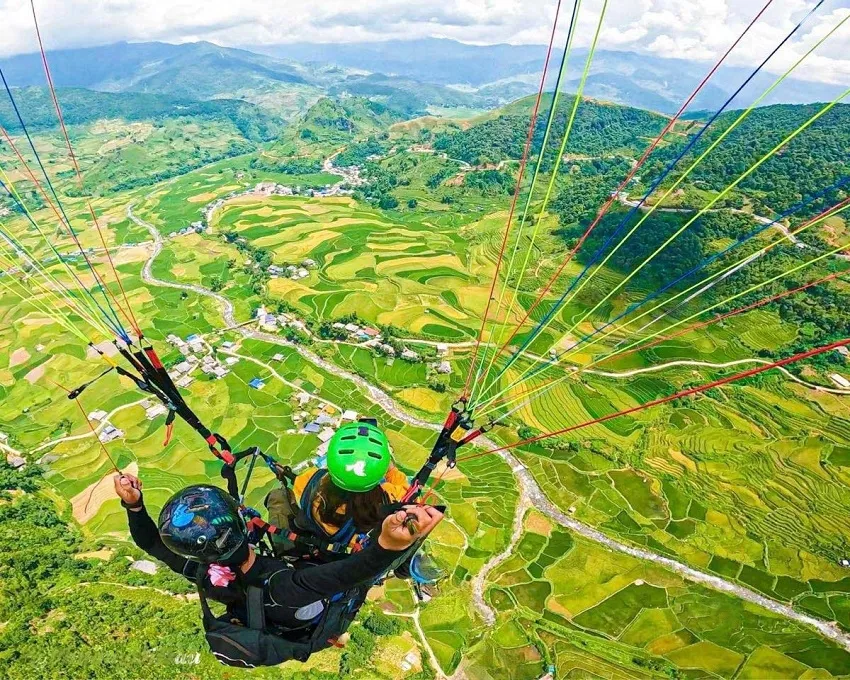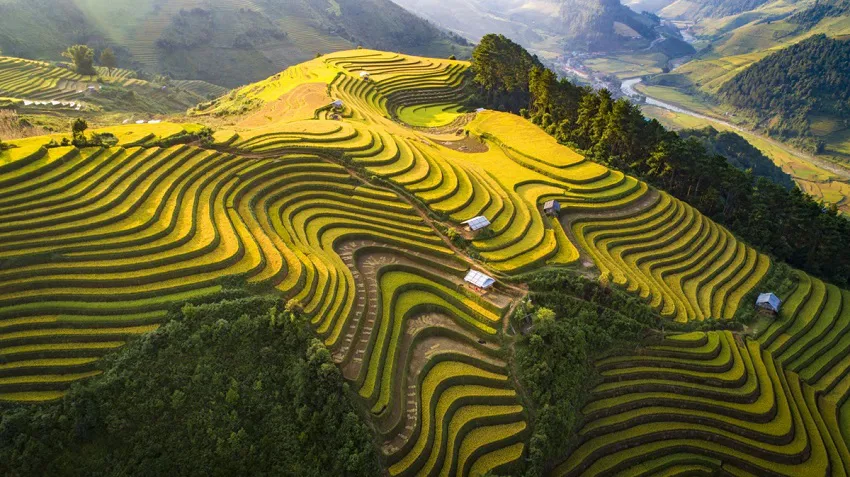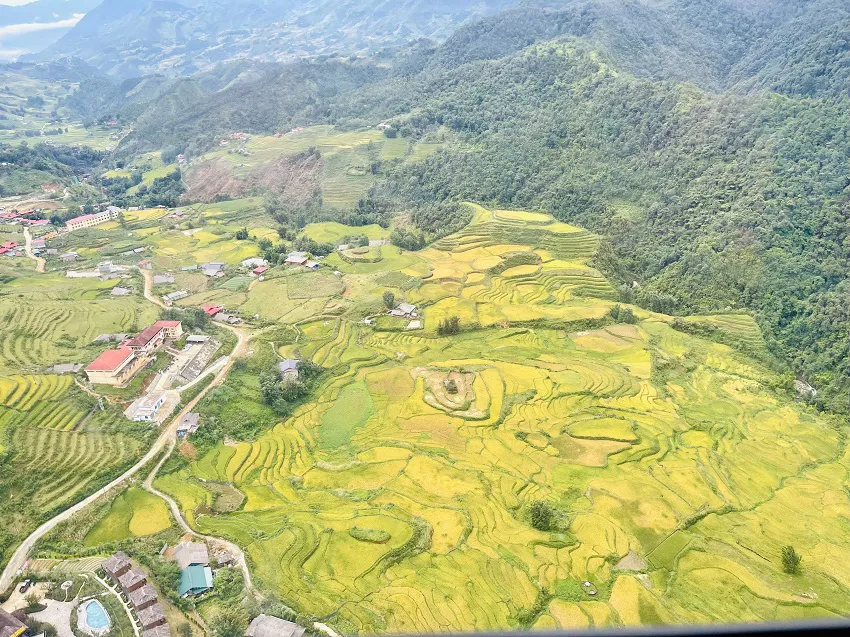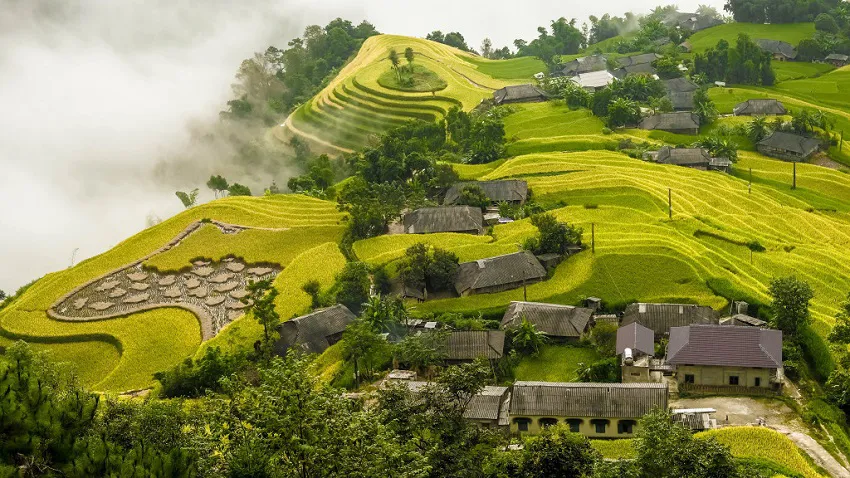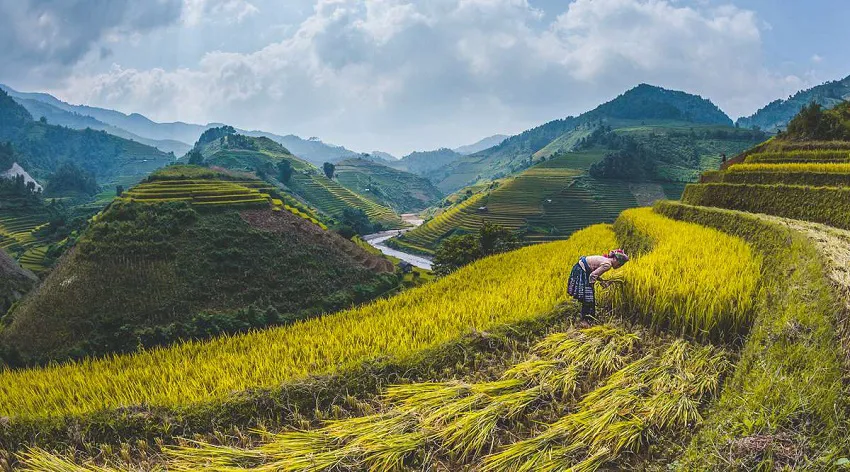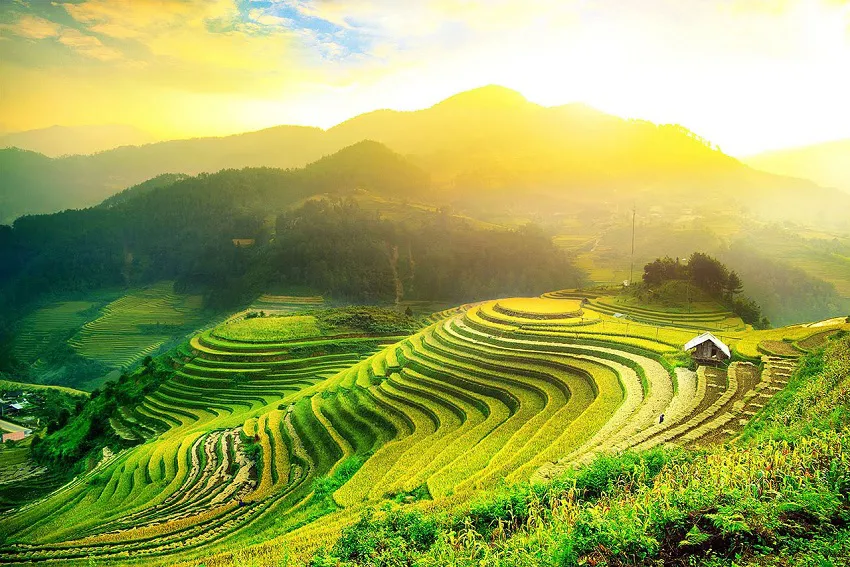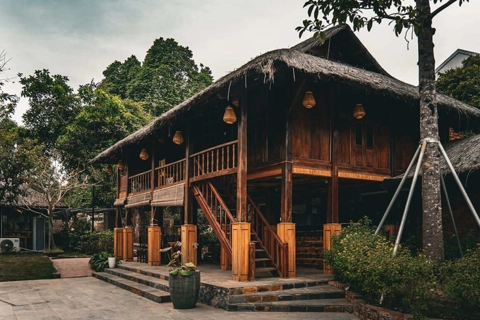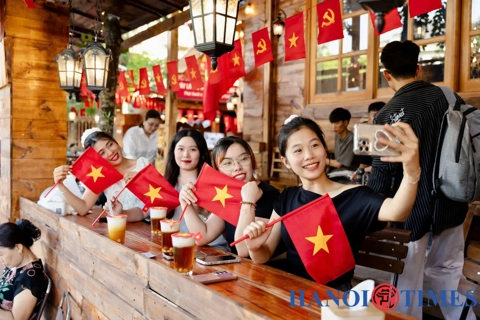Charming Northwest region in the “gold season”
The rice terraces in the northwest turn yellow, offering a magnificent natural setting that captivates any visitor to the area.
Once a year the people of northwest Vietnam sow their rice. Then, in the Autumn, when the weather becomes ideal with blue skies overhead and sunlight drenching the mountains, is the time to admire golden terraced rice fields.
| Many travelers choose to paraglide to see My Cang Chai from a bird's eye view. Photo: Phuong Di Dau |
Many also enjoy watching the people work in the fields, harvesting, packing, and taking home the rice. Once travelers experience these breathtaking views, it's hard for them to leave.
And each year, when fall comes, they may want to return to the mountains.
Terraced rice fields are a way of growing crops on sloping mountainsides and have been adopted by many ethnic minorities in the northwest for centuries. They are also beautiful man-made landscapes. As harvest season approaches, The Hanoi Times highlights some of the best places to view and photograph the spectacular scenery.
Tu Le Valley, Van Chan Commune, Yen Bai Province
| The stunning Tu Le Village. Photo: Zing News |
Yen Bai's terraced fields are beautiful all year round. Visitors are treated to seeing glistening ponds in March before people plant rice seedlings in April and May. After May, the hills are green until early September, when the fields turn yellow with ripe rice. During the harvest in October, the golden rice field stands out against the green forests, creating a magnificent scene in northern Vietnam.
Sapa Town, Lao Cai Province
| The scenery of Sapa Town from a cable car window. Photo: Chu Nga |
Sapa is one of the most popular tourist attractions in Vietnam, with the fantastic rice terraces as the absolute highlight.
The rice fields in the ancient city have been there for hundreds of years, created by ethnic minorities such as the H'Mong, Dao, Tay, and Ha Nhi from generation to generation.
From a distance, the beautiful terraces look like a ladder with steps to the sky. The large rice fields not only provide food for the locals but also offer breathtaking views for travelers, especially from the bird's-eye view of the cable cars up Fansipan Mountain.
Hoang Su Phi Commune, Ha Giang Province
| The fairytale scenery of Hoang Su Phi mountain in autumn. Photo: Ivivu |
Hoang Su Phi is located about 112 kilometers from Ha Giang City and is known for its marvelous landscape. Its national heritage terraced rice fields attract thousands of tourists every year. The most beautiful rice terraces are along and near the road between Hoang Su Phi and Xi Man communes.
Khau Pha Valley, Mu Cang Chai District, Yen Bai Province
Sandwiched between Nghia Lo Town and Mu Cang Chai Town, Khau Pha Valley has many rice fields and Khau Pha Pass, which is considered one of the four most dangerous passes in Vietnam, along with O Quy Ho, on the road connecting Lao Cai and Lai Chau Provinces, Pha Din in Dien Bien Province, and Ma Pi Leng in Ha Giang Province.
The scenery of rice fields and the daily activities of the Lim Thai and Lim Mong villagers are unique traits that attract visitors. Khau Pha Valley is located on National Road No.32, about 250 km from Hanoi.
Rice is harvested from mid-September, offering breathtaking views. Visitors can also visit Lim Thai Village or Lim Mong Village in spring to learn more about local customs.
| The rice harvest season in the Khau Pha Valley takes place every September and October. Photo: Booking.com |
Mu Cang Chai Town, Mu Cang Chai District, Yen Bai Province
The town is picturesque, about 300 kilometers from Hanoi, where the rice terraces are about to ripen in the fall.
Many Vietnamese and foreign visitors love to flock to these impressive fields to take pictures and enjoy the breathtaking beauty of nature during harvest time.
These terraced fields, located in the three communes of La Pan Tan, De Xu Phinh and Che Cu Nha in Mu Cang Chai District, are considered the most beautiful in northern Vietnam and were recognized as a National Landscape of Vietnam in 2007.
| The magical space of Mu Cang Chai Town. Photo: Phuong Di Dau |
Mu Cang Chai Town has terrain at different elevations, which makes the landscape particularly impressive. The timing of the rice harvest also varies according to the altitude. The higher the fields, the later the rice ripens. The end of September is a common time for harvesting.
Located on National Highway 32, the town is 280 km from Hanoi and takes about seven hours to reach.
The commune is also full of hiking trails and vibrant local culture. Black Hmong, a branch of one of Vietnam's largest ethnic minorities, are the main residents.
Various activities such as trekking, paragliding, and cycling take place in the area, making it a new destination for adventure travel.
In 2019, the US business news channel CNBC included Mu Cang Chai among the top travel destinations in the world for 2020.


